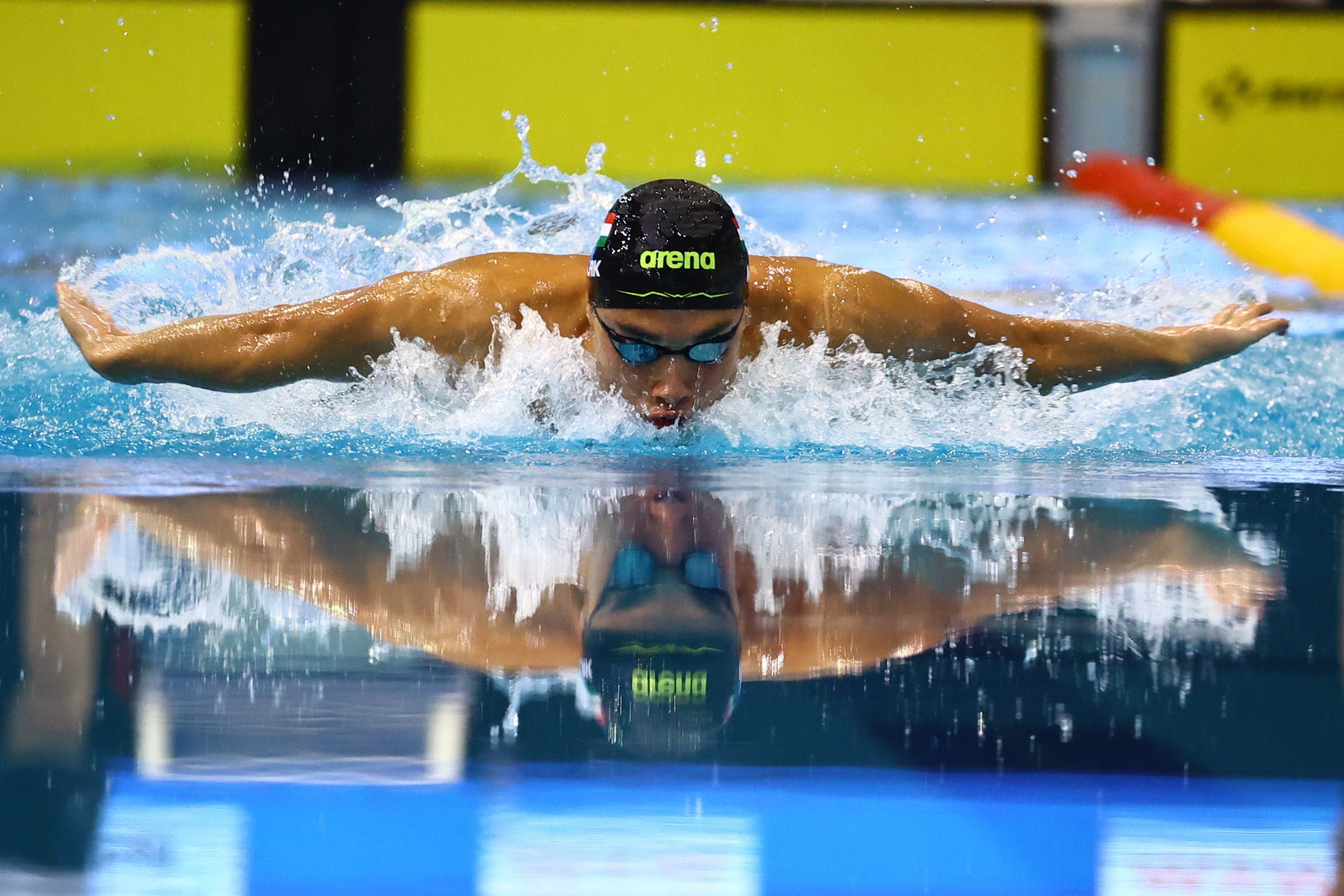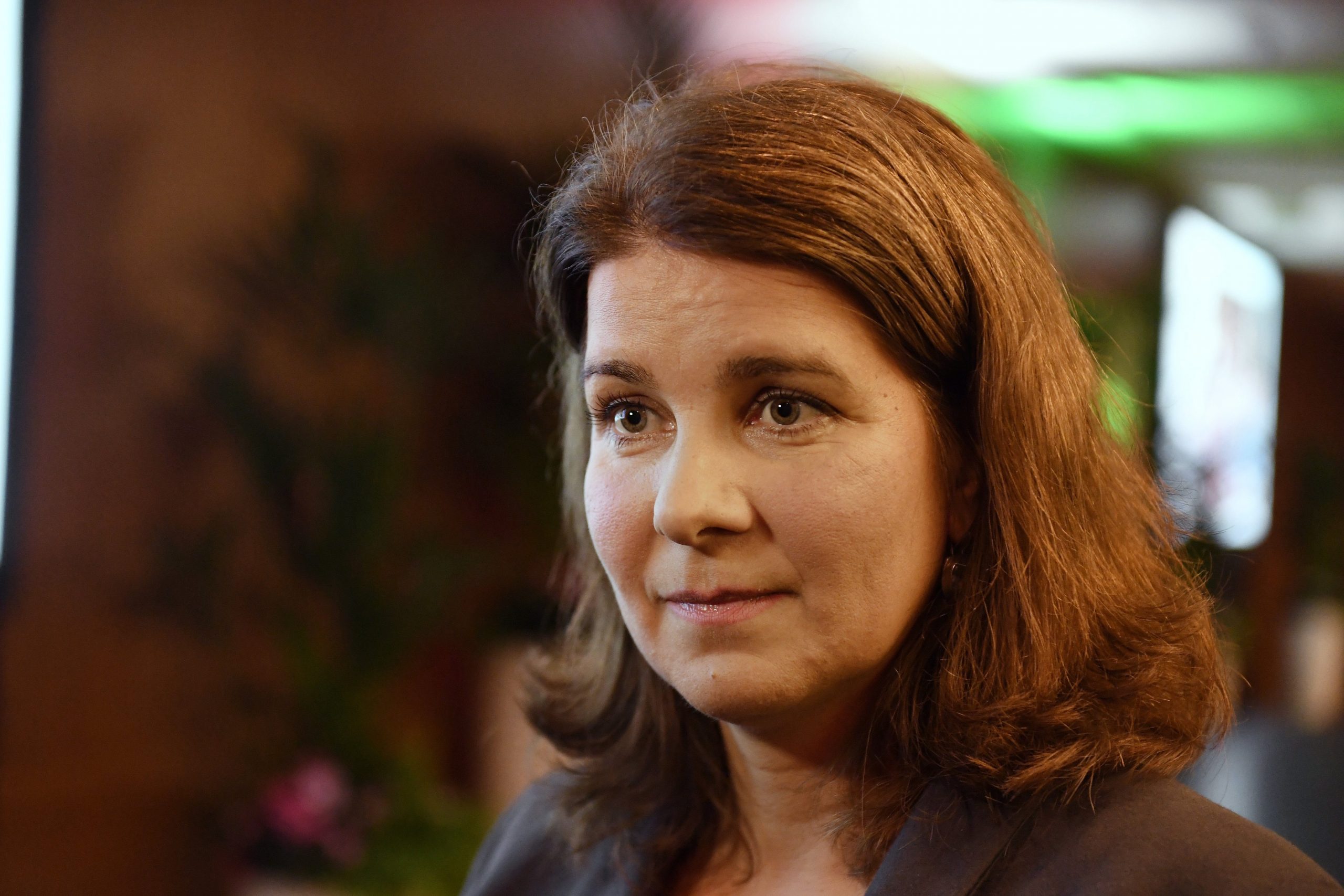
In swimming, a total of 31 Hungarian athletes will compete. The captain and the federation expect three or four medals, at least one of them gold.Continue reading

The five-time Olympic champion Krisztina Egerszegi talked to Mandiner about motherhood, her ambassadorial role, and of course, swimming.
Egerszegi, who retired at the age of 22, says she has no regrets; in fact, she had been planning to do so since she was 18: “I was determined from childhood that I would swim until I was eighteen, get married at twenty-two, have children, and that was it. That is what I wanted, but at that time I was already four years behind because I was competing in Atlanta at the age of twenty-two.”
She believes that swimming today is “a bit over-mystified. Maybe too much science is involved, too much swimwear, too much streamlining, too much diet, but you still have to do the work.” She adds: “Sport psychology, for example, is very important, it was in our time because an athlete has to be mentally prepared, there’s no question about that. But you can also stand there in a simple swimsuit and swim the distance well. The Olympic ideal was basically about that, and today I can really feel how different that is for the sporting world. I still love swimming to this day, but I don’t regret that I don’t take part in it anymore.”
Regarding the transgender competition, she says: “Men’s sport is men’s sport, women’s sport is women’s sport. I think that a fair competition could be maintained if there was a separate category for transgender athletes, which is the best way I would see so that no one’s right to compete would be violated.”
Egerszegi says:
To this day, I can be moved to tears when someone comes up to me and tells me what it meant to them when I was competing, where they were, what they were doing when I was swimming for gold.”
“Of course, I am very happy to have influenced the next generation. If just one more kid went down to the pool because of me, it was worth it,” she adds, when asked how she felt about the fact that fellow Olympic champion swimmer Katinka Hosszú said in several interviews that she said yes to a biopic about her, because she watched Egereszegi’s film many times as a kid, and it meant a lot to her.
At the request of the Federation President Sándor Wladár, Egerszegi agreed to participate in the National Swimming Program. She says it is because of the children: “It’s not about looking for the great champions of the future, it’s about teaching all children from kindergarten to second grade to swim with confidence in an organized setting… What really struck me is that children who would never have the opportunity to learn to swim are being taught to do so.”
About a possible future Hungarian Olympic Games, she says: “Every sporting, artistic and cultural event we organize makes the country more. World-class facilities have been built, we are perfectly capable of hosting huge sporting events such as the FINA World Championships, which we can now take on for the second time. So the knowledge is there, we just need to believe that Hungary can host a Summer Olympics.”
The five-time Olympic champion says that she has been swimming 16-18 kilometers a day during her preparations. Now, she is “more of a mum in the water at Lake Balaton than a former competitive swimmer” when she swims in it.
Of her children, she says “Sometimes when I look at them and see that they’re all grown up, I am as amazed as I am at my swimming results. Did I do all this? Did the years really go by so fast?” Egerszegi has three children: Bálint (22), Barnabás (20), and Zille (18). “What I saw of her as a child meant so much to me that maybe that’s why I wanted to be a mother so soon,” she says of her mother.
It may sound strange, but I found fulfillment in motherhood after swimming. That’s what I wanted.”
“We left it up to them to decide what they wanted,” Egerszegi says about her children. Two of them have been swimming and all of them did some kind of sport but they ended up going in different directions. “I have always found that everything you learn makes you more; you can change later, and you can decide differently, but the energy you invest will not be lost,” Egerszegi says, adding:
Watching them, I see, and this is one of the biggest lessons, that every person is different, it is not natural for someone’s child to start on the same path.”
Featured image via Szilárd Koszticsák/MTI